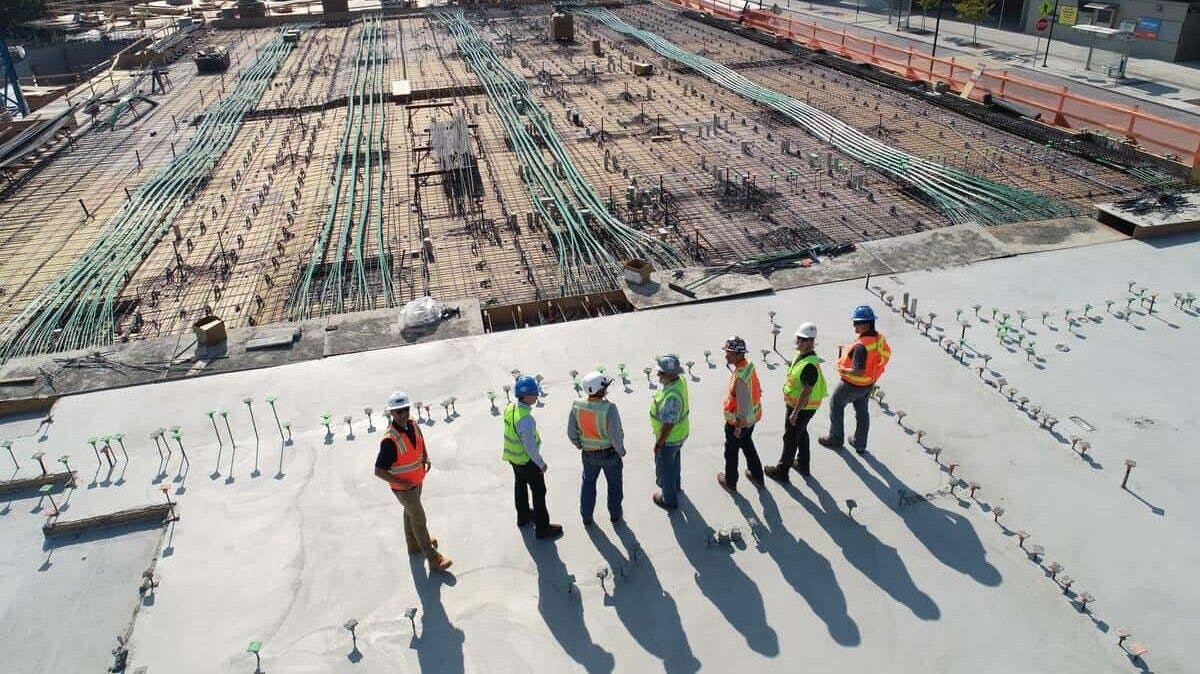Australia’s construction sector continues to grapple with a longstanding issue that is costing the country billions.
The KPMG Global Construction Survey 2023 reveals that Australia’s productivity growth has remained disappointingly low for the past 30 years, resulting in an estimated loss of a staggering $47 billion in untapped opportunities. Additionally, the survey highlights another major concern: a significant majority of 87 per cent of respondents identify project performance as an ongoing problem within the industry.
Further exacerbating the construction sector’s challenges is the need for completion deadlines. Astonishingly, only half of the project owners are successfully delivering their projects on time. This glaring statistic underscores the immense pressures associated with project completion, which can have far-reaching consequences on overall efficiency and profitability.
Effective risk management emerges as yet another critical issue, with 37 per cent of respondents admitting to missing budget and/or scheduled performance targets due to insufficient risk management practices. This glaring admission underscores the urgent need for robust risk assessment and mitigation strategies to ensure project success and avert potential financial setbacks.
However, amidst these challenges, there is a glimmer of hope for the Australian construction sector. The survey suggests that by embracing technology and giving due consideration to environmental, social, and governance (ESG) factors, the industry can chart a path toward improvement. Embracing cutting-edge advancements such as building information modelling (BIM), digital collaboration tools, and automation has the potential to significantly enhance productivity and project performance.
Rise of technology in construction
The use of technology, particularly AI, is on the rise in the construction sector. In 2018, only 23 per cent of respondents had adopted or considered AI, but that figure has now increased to 37 per cent in 2023. AI applications such as digital twins, smarter construction equipment, data and document management, and enhanced safety and communication are becoming more prevalent.
“Project performance was highlighted as a continuing issue in the survey,” said Nigel Virgo, KPMG National Sector Leader, Property Construction and Logistics. “We’d point to the finding that 87 percent said their projects are coming under greater scrutiny – and only 50 percent of project owners are meeting completion deadlines.”
Mr Virgo said that, in addition, 37 percent of respondents revealed they have missed budget and/or scheduled performance targets due to lack of effective risk management.
“These findings underscore the need for risk rebalancing in the Australian construction sector. It’s a survival issue for many now,” he said. “In addition, while many of the older ‘fixed priced’ projects are coming to an end, there is still significant concern around further insolvencies across the construction supply chain. The construction industry is looking to rebalance how project risks are shared with clients, builders, and subcontractors – and focus on delivering productivity gains. Technology is one of the pathways to success – together with solutions such as modular manufacturing.”
Opportunities for risk sharing and modular manufacturing
According to the KPMG Global Construction Survey 2023, the construction industry is witnessing the emergence of risk-sharing opportunities and the growing popularity of modular and off-site manufacturing. These trends offer potential solutions to cost pressures and risk mitigation.
Risk-sharing contracts mitigate insolvencies
Construction firms are increasingly seeking partners who understand cost pressures and can help mitigate risks. By entering into risk-sharing contracts with contractors and subcontractors, the construction supply chain can reduce the likelihood of insolvencies. This collaborative approach provides a framework for managing and distributing risks effectively.
Process automation and technology adoption
To alleviate cost pressures, a significant number of respondents (42 per cent) are turning to process automation. Virtual reality, project management information systems, drones, and AI are being leveraged to improve productivity and reduce expenses. However, the survey emphasises the need for greater consistency in adopting these technologies across the industry to realise their benefits fully.
Modular manufacturing addresses industry challenges
Modular and off-site manufacturing is gaining traction, especially in the Northern Hemisphere. This innovative approach to construction offers solutions to various challenges, including supply chain disruptions, labor shortages, rising interest rates, and environmental impact reduction. Furthermore, modular manufacturing enhances worker safety and improves overall project efficiency.
ESG integration for competitive advantage
Environmental, Social, and Governance (ESG) considerations have become integral to the construction industry, driven by the energy transition and the global focus on achieving net-zero targets. The survey highlights that 50 per cent of construction and engineering companies perceive ESG initiatives as an opportunity for gaining a competitive edge. Reputational improvement, competitive advantage, diversity, equity, and inclusion were key benefits of embedding ESG into capital projects.
Addressing embodied carbon emissions
The survey underscores the significance of embodied carbon emissions, with half of all carbon emissions occurring before a building becomes operational. Construction companies are prioritising energy efficiency, reduction of construction waste, and optimised material usage to combat this issue. KPMG’s Origins team has developed the Asset Impact tool. This blockchain-based technology enables supply chain visibility, control, and reporting of embodied carbon in buildings, contributing to the industry’s decarbonisation efforts.
Keep up to date with our stories on LinkedIn, Twitter, Facebook and Instagram.

